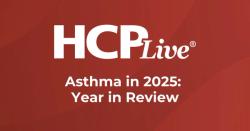
OR WAIT null SECS
Julia Moore Vogel, PhD, MBA: Long Covid Care Lacks Urgency
Lungcast's July episode guest discusses how long Covid therapy development is still about 5 years away from the market.
After 3 years, the clinical impact of long Covid is still coming to understanding for clinicians, researchers, and the potentially millions affected by the viral syndrome. But the urgency once in place to placate the acute effects of the COVID-19 pandemic has not been replicated for the chronic long Covid.
In the latest episode of Lungcast, American Lung Assocation (ALA) chief medical officer Al Rizzo, MD, spoke with long Covid researcher and patient Julia Moore Vogel, PhD, MBA, program director of The Participant Center at Scripps’ All of Us Research Program, on her frustrations regarding the “lack of sense of urgency” to develop and assess treatments for long Covid.
“I think it’s been very difficult because we all want this pandemic to be over…that in my view, we have conflated that with the long Covid/mass disabling event ending,” Vogel said. Despite this conflation, fewer than 1 in 10 patients have reported recovering from long Covid after 2 years of disease, per Vogel.
“In my mind, we should be focusing now on clinical trials,” Vogel said. “And there are many candidates…where there are just now beginning some trials, which in my view is very late into the game.”
However, investigators are curbed by the reality that many of these ongoing, small-sampled trials may not be high-powered enough to inform regulatory care strategies to be implemented for long Covid. Progress is not substantial.
“Since I first got long Covid, I’d been saying, ‘I think we’re 5 years away from having good treatments’,” Vogel said. “And I think we’re probably still 5 years away from having good treatments.”
Regarding available pharmaceutical interventions, Vogel stressed the impact of COVID-19 vaccines on decreasing the prevalence of long Covid. She added that well-timed acute therapies like metformin have been associated with reduced risk of long Covid development in infected patients.
Disparities may exist in factors including SARS-CoV-2 variants as well as sociodemographic backgrounds, but Vogel stressed the long Covid patients at worst risk of disease adversity are unique to the chronic impact of the disease.
“We’ve seen larger prevalence of COVID-19 cases in certain groups like Black and Hispanic communities…so it’s not surprising we’re now seeing a larger prevalence of long Covid in those communities as well,” Vogel said. “I worry most about those that are not able to access the health care system, and those who are more financially dependent on physical exertion for their jobs.”
Lungcast is a monthly respiratory health podcast series from the ALA produced by HCPLive.
Subscribe to Lungcast on Spotify here or listen to the latest episode below:


